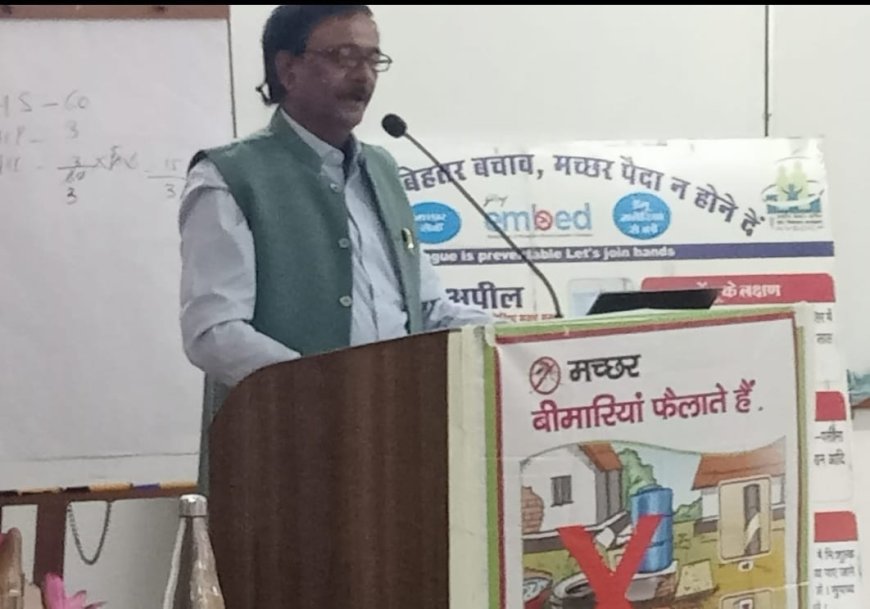State level Behaviour Change Communication Facilitator Training Camp organised
Three-day state level behaviour change communication facilitator training camp organized under the aegis of Family Health India

Lucknow. A three-day state level behaviour change communication facilitator training camp was organized under the aegis of Family Health India. All the B.C.C.F.s of eight districts participated in it.
Family Health India, in collaboration with the Health Department, organized a three-day state level training camp for field workers under the Embed project at Sahbhagi Shikshan Sansthan, Chhatha Mile.
All the 80 B.C.C.F.-Behaviour Change Communication Facilitators of eight districts- Bareilly, Badaun, Lucknow, Kanpur, Agra, Meerut, Sonbhadra and Mirzapur participated in it.
In his address after the inauguration of the first day of training, Joint Director Dengue and VBD Uttar Pradesh Dr. Vikas Singhal stressed on the need to make Village Health Sanitation Nutrition Committee useful in rural areas and to strengthen it further.
While discussing the complete treatment of malaria, he said that the first dose of malaria medicine should be administered by the service provider in his presence, and also inform the patient that he must complete his treatment.
Pregnant women and children up to five years of age are at a higher risk of malaria. They should be advised to sleep under mosquito nets.
If someone has fever, then they should be tested immediately through ASHA. During vaccination, ensure that all women present there are tested for malaria through ASHA.
Senior Malaria Inspector Samiullah Khan said that every fever patient should be tested, and the lab technician should have malaria medicine and he should administer the first dose in his presence. Second day
On the second day of the BCCF training under the Embed project run by Family Health India in collaboration with the Health Department, State Information Commissioner Padum Narayan Dwivedi said that almost all the countries of the world are troubled by dengue.
He said that only with continuous efforts and community support in this direction can an area be kept free from malaria and dengue.
Discussing his travel memories of Sri Lanka, a malaria-free nation certified by the World Health Organization, he said that the sense of citizenship among the citizens there is important.
Appreciating the efforts being made by BCCF towards malaria eradication, he said that it is necessary to take the help of various means of media to reach these various awareness activities to the local people.
Senior Advocate and State Law Officer Arvind Bhardwaj discussed in detail the rights to health for the general public.
।।Sarve Bhavantu Sukhinaye Sarve Bhavantu Niramaya।। With this thought, state entomologist Dr. Sudesh Kumar told about the aquatic life cycle of mosquitoes that malaria's Anopheles mosquito breeds in dirty water and dengue's Aedes mosquito breeds in stagnant clean water.
It is very important to end them in aquatic state. The life of a male mosquito is seven to ten days. The male mosquito nourishes itself from flowers and leaves, while the female mosquito nourishes itself by sucking blood.
He told that mosquitoes breed very fast, a female mosquito lays eggs 3 to 4 times in its life span and lays 200 to 250 eggs at a time.
SBC Specialist Dr. Danish Khan from UNICEF said that we should use dialogue and language based on local issues to reach our point to the people in the community. He said his point through different levels of six 'Na's, on which BCCF practiced these different stages of IPC through role play.
*CMD of Meditech Institute Dr. Arun Bharari discussed time management and better communication. On this occasion, the attention of the people was drawn towards various means of protection from mosquitoes through wooden IEC and they were encouraged to use these available means.

 Yash Saini
Yash Saini 





